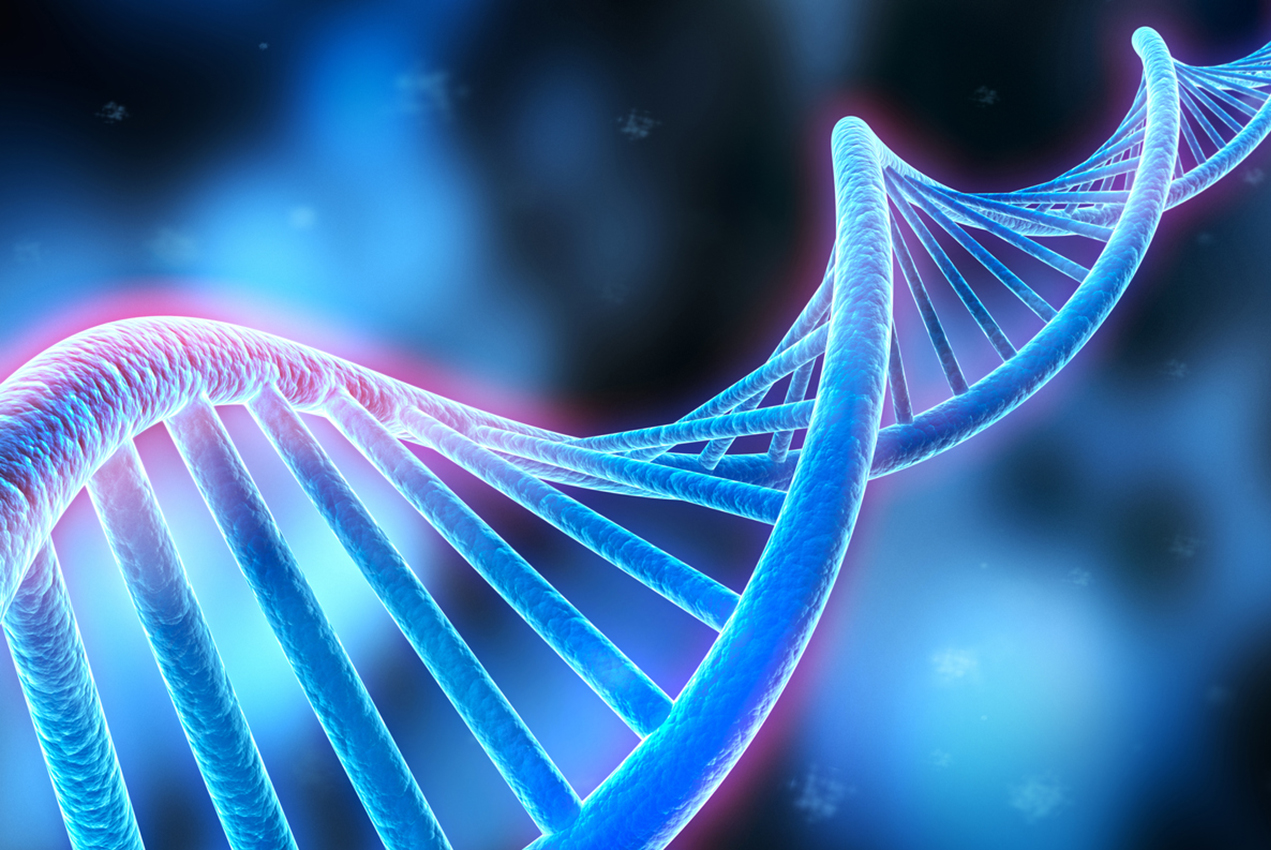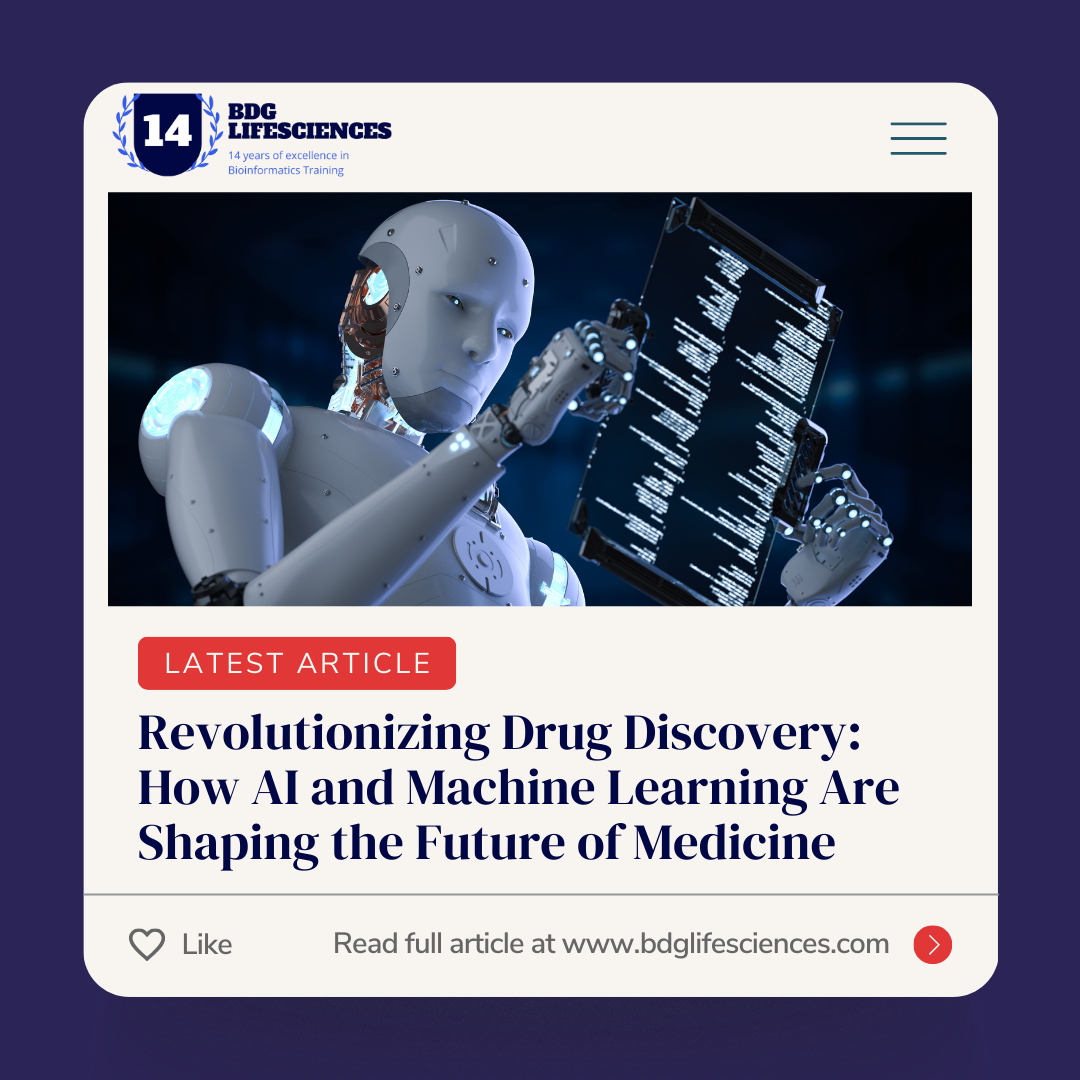
Blog

08 Nov , 2024
Artificial Intelligence (AI) and Machine Learning (ML) are revolutionizing the field of drug discovery by drastically enhancing the speed and accuracy of identifying new drug candidates. Historically, drug discovery involved a labor-intensive and costly process that could take over a decade from initial screening to market. With AI-driven methods, researchers can now streamline drug development, accelerating breakthroughs in various medical fields and addressing previously untreatable conditions.
The Evolution of AI in Drug Discovery
AI’s role in drug discovery has evolved significantly over the past few decades. Early computational approaches focused primarily on molecular modeling, simulations, and structure-based drug design. However, with the advent of big data and advances in AI and ML, particularly deep learning, AI is now capable of processing large datasets, predicting molecular interactions, and optimizing clinical trials. This evolution is transforming AI from a supportive tool to an integral part of the drug discovery pipeline.
How AI and ML Are Transforming Each Stage of Drug Discovery
Target Identification and Validation AI algorithms analyze vast datasets—ranging from genetic information to protein-protein interactions—to identify potential drug targets. AI can detect patterns in the data that point to proteins or genes likely associated with disease, significantly narrowing down the list of viable targets for further testing.
Hit Identification and Lead Optimization Traditional drug discovery involves screening millions of compounds to identify molecules that bind effectively to the target protein. Machine learning algorithms can rapidly analyze compound libraries and predict which molecules are most likely to succeed as drug candidates, saving time and resources. Lead compounds can then be optimized using ML models to enhance their potency, bioavailability, and safety.
Preclinical Studies and Toxicity Prediction Before human trials, compounds must undergo rigorous testing to ensure their safety. AI helps in predicting adverse effects by analyzing biological data from preclinical studies, including animal models and in vitro assays. Toxicity prediction models assess the likelihood of side effects, reducing the risk of failure in later stages.
Clinical Trial Design and Patient Recruitment Clinical trials are a costly and time-consuming phase of drug development. AI plays a critical role in optimizing trial design and recruiting suitable patient populations. By analyzing patient data, including genetic and phenotypic information, AI can improve patient stratification, reduce trial costs, and increase the chances of success.
Case Studies: Success Stories of AI in Drug Discovery
Atomwise’s Virtual Screening for Ebola Treatment Atomwise, an AI-driven drug discovery company, used deep learning algorithms to screen millions of compounds and identify those with the potential to treat Ebola. Their AI models were able to find promising molecules within weeks, significantly faster than traditional drug discovery methods.
BenevolentAI’s Discovery of Baricitinib for COVID-19 BenevolentAI employed its AI platform to repurpose existing drugs to treat COVID-19. The platform suggested Baricitinib, originally developed for rheumatoid arthritis, which was later approved as a COVID-19 treatment. This success underscored AI's ability to identify potential therapies swiftly in response to urgent medical needs.
Insilico Medicine’s AI-Designed Drug for Fibrosis Insilico Medicine developed an AI platform that generated a novel compound targeting fibrosis within 18 months—a fraction of the traditional time required. This breakthrough highlighted AI's potential to generate first-in-class molecules, reducing drug development timelines.
AI Algorithms and Tools in Drug Discovery
Several advanced algorithms and tools have become popular in AI-driven drug discovery:
Popular platforms include TensorFlow and PyTorch for ML model development, while specialized platforms like DeepChem and BioSymphony offer frameworks tailored to molecular data analysis and drug discovery applications.
Challenges in AI-Driven Drug Discovery
While AI offers remarkable potential, challenges remain:
Data Quality and Availability: AI models require vast amounts of high-quality data. However, obtaining clean, consistent, and sufficiently detailed biological data can be challenging, especially across different sources and institutions.
Model Interpretability: Many AI models, especially deep learning ones, operate as "black boxes," making it difficult for researchers to understand how predictions are generated. This lack of transparency can hinder regulatory approval and the scientific community’s trust in AI-driven decisions.
Scalability and Integration: Implementing AI systems across all stages of drug discovery requires significant computational power and seamless integration with existing workflows. Small to mid-sized companies may find this transition financially and logistically challenging.
Ethical and Regulatory Considerations
The rapid adoption of AI in drug discovery raises important ethical and regulatory questions:
The Future of AI in Drug Discovery
As AI technology advances, it is expected to unlock new possibilities in drug development:
Conclusion
AI and machine learning are fundamentally reshaping drug discovery, transforming it from a slow, high-risk endeavor to a faster, data-driven process with immense potential. With continuous advancements in AI technology and growing data availability, we are witnessing a new era where innovative treatments could be developed more quickly and efficiently than ever before. However, to fully realize this potential, the field must address key challenges related to data quality, interpretability, and ethical considerations. AI promises a future where personalized medicine and rapid drug discovery become the standard, benefiting patients and healthcare systems worldwide.
